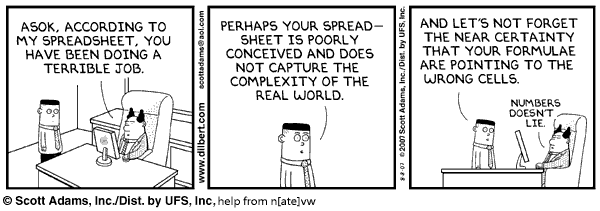Indie IP
This post, subtitled “Intellectual Property for the Independent Developer”, was originally put together as a Blitz talk submission for this year’s C4 conference. I was reminded by the latest Core Intuition podcast to share it here.
Intellectuwha?
As creators, we have this sense of ownership over our work. This concept has many legal “implementations” under a framework known as Intellectual Property. Intellectual property (IP) is a blanket term for the idea that it’s not just wrong to steal Suzie’s crayons, but it’s also wrong to rip off her work as well.
Intellectual Property rights help one monetize their mind. Unlike physical property, violating someone’s IP rights doesn’t rob them of the thing itself, but it does deprive them of control over how — and for how much! — their work is used.
Disclaimer
I should make one thing clear: I am NOT a lawyer, and this is not legal advice. There’s a lot of depth and detail in this realm, these concepts are an architecture whose requirements keep shifting, and my advice here may not be in your best interest.
This post is a high-level overview of a few specific IP rights. I’m defining them based on my understanding of US law. Most other countries have similar protections, but they differ in the details.
Copyright: Control your creations
Copyright is for creative work, like programs and icons and documentation. These things are way easier to copy than they are to make, so the law says that creators have the right to decide — to control — what copies are made and under what terms.
It’s actually the owner who controls the work. Ownership can be transfered (talk with your graphic designers about it) and if you’re employed or doing contract work you’ll want to make sure it’s clear who owns the things you create.
Most of the time as an independent developer, you’ll want to share copies of your work, so long as you profit somehow. When you “license” your software or source code, you get to set the terms for that to happen the way you want. For example, if your binary ends up on one of those shady “pay $4 to download” sites you may be able to use your copyright and/or trademark rights to have it taken down.
Trademarks: Control your brand.
Trademark is for your “brand elements”: company and product names, identifying logos and slogans, even elements of industrial design (like the iPod’s shape). You are given some control over them to prevent misuse.
You automatically get trademark protection as soon as you start using a brand; you can draw attention to that with the little ™ symbol. Copyright is similar; it’s an automatic right upon publishing. But with both, if you can afford to register, you get better weapons in court (at least in the US, where IP law is biased towards larger interests).
Trademarks don’t give you complete control. People can still criticize your brand using your own trademarks, for example. Copyright has some fair use exceptions, too. Remember, there’s a lot of depth to IP law. All of this is just legal control: you still may need to pay lawyers and go to court to claim (defend, really!) your rights.
Patents: Control your HOWTO (for a while)
Speaking of paying lawyers! A patent is basically a HOWTO with benefits — you reveal and explain a new mechanism or method, in exchange for about twenty years of control over your specific invention. Patents are the nuclear weapons of the software business…they’re expensive to file and even more costly to deploy in court. It’s typically only large corporations who can afford to parade their patent portfolios, though little rogue nations do like to ride the bombs down now and then.
Trade secrets: Control your knowledge (forever…maybe)
Trade secrets are probably a better solution than patents for most indies. You can control this form of IP as long as you can keep it a secret. Most legal systems provide penalties against leaks, but once the damage is done, you have lost control.
One way to encourage secrecy is through the use of Non-Disclosure Agreements. Some *cough* companies do NDAs in a big way as a sort of trade secret bunker around their patents, but indies can make use of the same legal protections of these contracts to control things like beta releases and details about under-the-hood secret sauce.
IANANAL
In some ways, Intellectual Property is the bedrock of the software business, and pressing it to full advantage might yield good financial returns. But my unofficial, could be wrong, might be bad, advice is to take it easy. Know your rights and don’t violate others’ rights, but don’t forget what keeps you in business either. One great part of the indie ethos is the desire not to control the world, but to contribute to it.
“Create more value than you capture” is a phrase Tim O’Reilly often uses, and I think it’s an apropos motto when it comes to Intellectual Property. Here are a few ways that you can use your IP rights to contribute, rather than control. You aren’t in the indie Mac community long before you see these practices in action:
- Respect your customers
- Spread knowledge
- Share source
- Boost others’ brands
Al fin
I think it’s important that developers have an awareness of their rights and their responsibilities regarding Intellectual Property, so I hope this was a helpful overview. If you’re looking for further reading, I’ve got a growing list of bookmarks tagged with iplaw and related terms that may be of interest.

